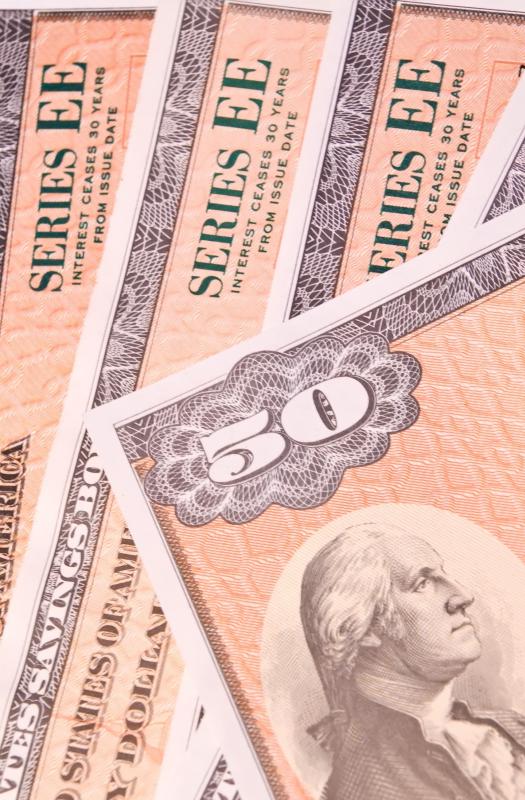At WiseGEEK, we're committed to delivering accurate, trustworthy information. Our expert-authored content is rigorously fact-checked and sourced from credible authorities. Discover how we uphold the highest standards in providing you with reliable knowledge.
What Factors Affect the Value of a Savings Bond?
Savings bonds are debt instruments that are issued by government agencies around the world. The value of a savings bond largely depends on the bond's interest rate although the value of some bonds can be impacted by other factors such as inflation. Many bonds are non-marketable which means the original owner cannot sell the bond, but in some areas investors can also buy marketable bonds and the value of these bonds is affected by supply and demand.
When a bond is issued, the purchaser agrees to loan a sum of money to the issuer for a specific period of time. In return, the issuer agrees to pay interest on the debt and these interest payments have a direct impact on the value of a savings bond. Some government agencies enable bondholders to redeem these securities prior to maturity although the bondholder may lose some of the interest and or the principal as a result of cashing the bond in prematurely. Consequently, the earlier the bondholder redeems the bond, the more the redemption process is likely to result in a loss of earnings.

Some debt securities are inflation protected which means that the issuing entity have the right to alter the face value of the bond during the bond term to account for inflation. If inflation causes other assets to rise in value then the bond's value may increase by the same amount. Conversely, the value of a savings bond may fall if prices drop because some issuers also adjust prices downwards when deflationary forces are at work in the economy.
In many instances, savings bonds are non-negotiable which means that the bond owner cannot sell the debt instrument to another person or entity. If the original owner dies, the bond becomes the property of that person's estate or passes to a named pay-on-death beneficiary. Many bond issuers stop paying interest on bonds past the maturity date and a bond may even become worthless if the bondholder fails to redeem it within a certain period of time after the bond terms ends.
Some governments issue marketable bonds in which case the owner may choose to sell the bond to another investor prior to maturity. In such instances, the value of a savings bond is determined by market forces that include supply and demand. If other bonds with higher yields are readily available than an investor may have to sell the bond at a discounted price. Conversely, if the yields being paid on newly issued bonds are lower than the bond, then the owner may be able to charge a premium and sell the debt instrument for a profit. The nearer a marketable bond gets to the maturity date, the closer its price is to the original face value plus the interest.
AS FEATURED ON:
AS FEATURED ON:











Discuss this Article
Post your comments